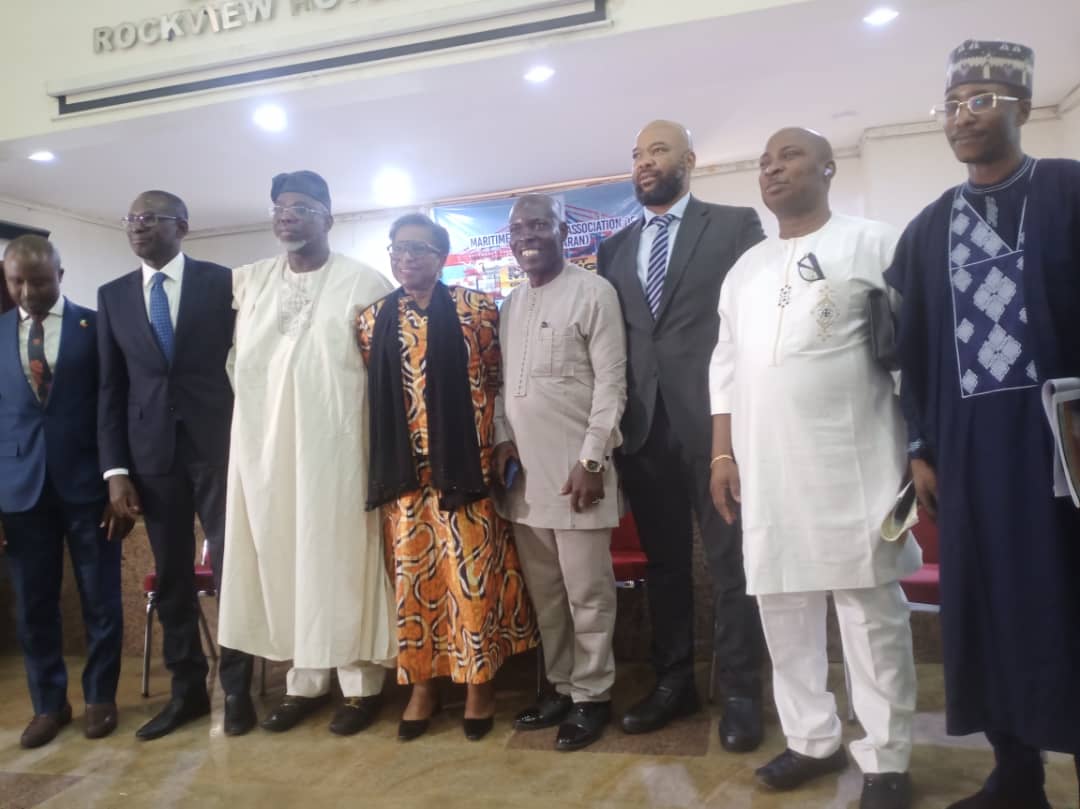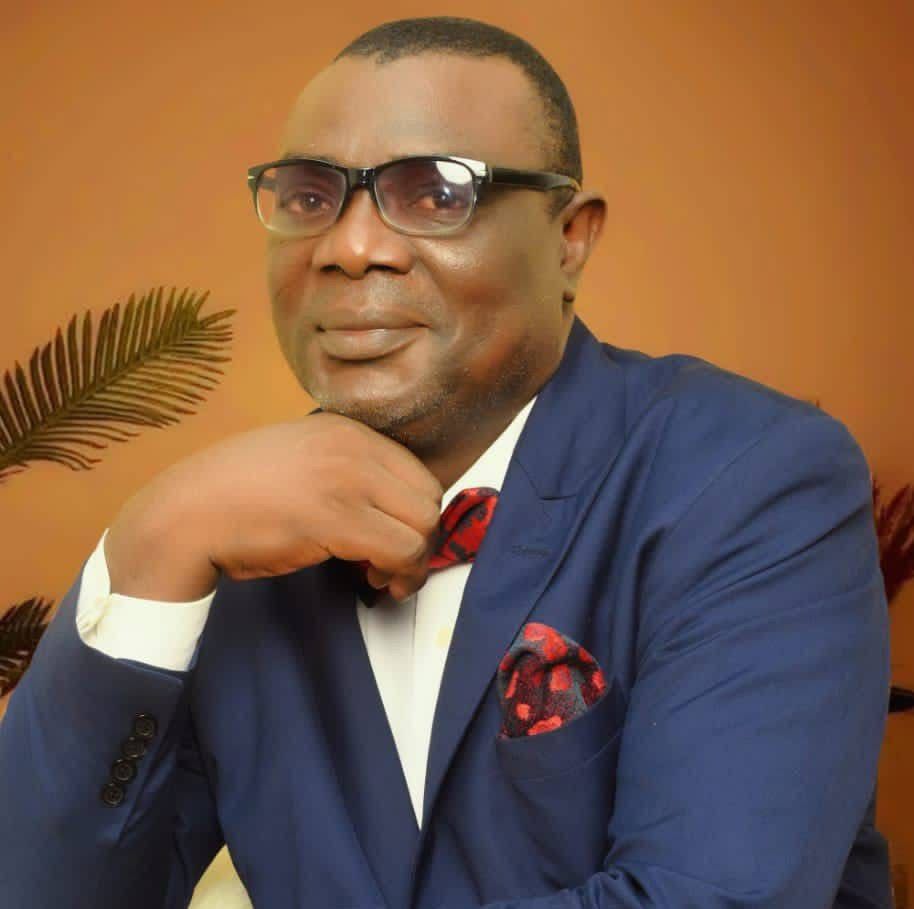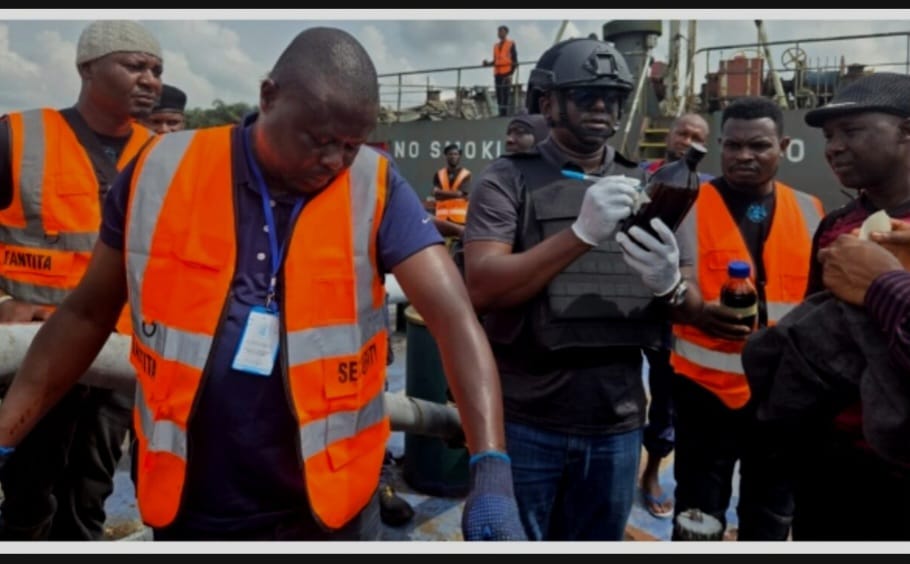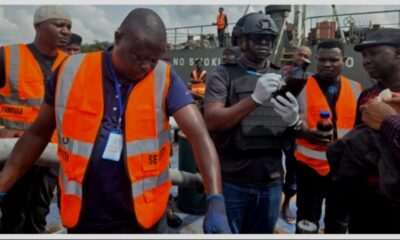Maritime Agencies
MARAN Breakfast Meeting: Nigeria – China Currency Swap Deal Will Favour Trade, says CBN.

By Izuchukwu Ozoemena
The Central Bank of Nigeria (CBN) says a Nigeria-China currency swap deal has the potential to impact on Nigeria’s maritime industry by reducing shipping costs, enhancing trade efficiency, and easing foreign exchange pressure.
CBN Governor, Mr. Olayemi Cardoso, stated this in Lagos, Tuesday, while speaking at a stakeholders’ breakfast meeting organized by the Maritime Reporters’ Association of Nigeria (MARAN).
He explained that the agreement originally signed in 2018 and renewed in December 2024 enables Nigerian and Chinese businesses to conduct trade directly in Naira and Yuan (the Chinese currency), thus, bypassing the U.S. dollar.
Cardoso who was represented by Anthony Ogufere, the Special Adviser on Finance and Strategy, stated: “The swap agreement simplifies the settlement of trade transactions in local currencies and reduces the pressure on Nigeria’s dollar reserves. This, in turn, lowers the cost of doing business and enhances the competitiveness of Nigerian trade.”
The CBN Governor informed that by the end of 2024, China had become Nigeria’s largest trading partner, accounting for about 35% of total imports and reaching a trade volume of $11.58 billion. He added that the maritime sector, which handles the majority of Nigeria’s import and export activities, stands to benefit immensely through faster port clearance, improved trade finance instruments, and direct shipping links such as the Lekki Deep Sea Port—a Chinese-backed infrastructure project under the Belt and Road Initiative.
The CBN Governor, however, acknowledged that several challenges still hinder the full potential of the currency swap framework. Chief among them is Nigeria’s significant trade imbalance with China and the limited adoption of yuan-denominated transactions by Nigerian businesses. He called for greater sensitization, policy coordination, and efforts to expand non-oil exports to China.
Also speaking at the event, Mr. Martins Olajide, a representative of the Nigeria-China Strategic Partnership, offered a more cautious outlook. He noted that while the swap deal provides short-term relief and smoother trade operations, it is not a sustainable solution to the naira’s persistent depreciation.
Describing the swap arrangement as “swapization,” Olajide warned that Nigeria’s economic vulnerability and dependence on imports—especially from China—undermines the true impact of the agreement. He emphasized the need for structural reforms, particularly in industrialization, value addition, and local production.
“Without these changes, the swap deal may only reinforce economic dependence on China without solving the underlying issues,” he warned.
In his opening remarks, the Chairman of the event and Chairman of the Customs Consultative Council (CCC), Aare Akeem Olarenwaju, decried the volatility of the naira-dollar exchange rate as a major cause of the skyrocketing cost of goods in Nigeria. He called for greater public awareness of alternative currency options like the Chinese yuan.
“You can’t determine the price of goods within a few hours due to constant exchange rate changes. Today it’s ₦1,600 to a dollar, and in the next few hours, it could be ₦1,700 or ₦1,500. It’s the common people who suffer the most,” Olarenwaju lamented.
He commended the organizers for opening up conversations around trade, currency, and maritime development, urging media professionals to help educate the public on alternatives that could reduce the nation’s dependence on the U.S. dollar.
Earlier in his welcome address, MARAN President, Mr. Godfrey Bivbere, reaffirmed the association’s commitment to promoting dialogue on key economic issues. While acknowledging the swap deal’s promise in reducing transaction costs and enhancing trade efficiency, Bivbere stressed the need for a balanced discourse.
“We are not only here to applaud progress but also to interrogate policy. We must understand both the positive impact and the underlying risks associated with China’s expanding economic footprint in Nigeria,” he said.
Bivbere urged stakeholders across the maritime, trade, and financial sectors to approach the Nigeria-China currency swap with critical insight, noting that sustainable benefits would only come through policies that protect national economic interests while encouraging growth and competitiveness.
Maritime Agencies
OIL FACILITIES PROTECTION: Tompolo’s Tantita Acquires High-Tech Drones From US Firm.

By Izuchukwu Ozoemena
Tantita Security Services Ltd (TSSL), the company in charge of security surveillance over oil and gas installations in Nigeria’s Niger Delta region, is in collaboration with Textron Systems Corporation, a United States–based defence and aerospace company, to supply her three advanced Aerosonde Mk. 4.7 Vertical Takeoff and Landing (VTOL) uncrewed aircraft systems (UAS).
TSSNL owned by Chief Government Ekpemupolo (popularly known as Tompolo) disclosed the business deal in her website publication of December 29, 2025. The drones will be delivered in a fully ITAR-Free configuration.

The Aerosonde Mk. 4.7 is designed to operate without runways, utilising hybrid quadrotor technology that enables vertical takeoff and landing, as well as fixed-wing flight.

The Aerosonde Mk. 4.7 VTOL UAS, Textron Systems says, is a mature, industry-proven autonomous platform known for its high reliability and operational flexibility. Its dual-mode capability allows it to operate seamlessly in complex and high-risk environments, making it well-suited for security operations within Nigeria’s oil and gas sector.
Giving further insight into the contract, Senior Vice President, Air, Land and Sea Systems at Textron Systems, David Phillips, said the deployment would significantly enhance Tantita’s operational capability.
”The Aerosonde Mk. 4.7 VTOL UAS is a proven solution that will enable Tantita Security Services to expand its capabilities to protect the oil and gas infrastructure essential to Nigerian security and prosperity,” he stated.
The Aerosonde platform has accumulated over 700,000 flight hours across some of the world’s most challenging operating environments, underscoring its reliability and performance.
Tantita Security Services is expected to deploy the systems to strengthen surveillance and protection of critical oil and gas assets across Nigeria.
The contract also includes options for operator training and the supply of additional aircraft to support future capability expansion. Textron Systems noted that the agreement builds on a previous Foreign Military Sale (FMS) contract to Nigeria, further highlighting its ongoing commitment to supporting Nigerian security operations.
Textron Systems is a global leader in uncrewed air, land and sea systems, with the Aerosonde family of UAS currently supporting international customers and operations aboard more than 10 U.S. Navy ships. The company is a subsidiary of Textron Inc. (NYSE: TXT), a diversified multinational with interests spanning aviation, defence, industrial manufacturing and finance.
With multiple payload configurations and comprehensive training and support services, the Aerosonde Mk. 4.7 VTOL UAS offers a versatile and efficient solution for security operations in demanding environments, reinforcing Tantita Security Services’ role in safeguarding Nigeria’s critical energy infrastructure.
Maritime Agencies
NEW YEAR CELEBRATION: MARAN Appreciates Stakeholders, Requests Greater Support and Collaboration in 2026.

By Izuchukwu Ozoemena
As Nigeria joins the rest of the world to celebrate a brand new year, the pioneer maritime journalists’ group, the Maritime Reporters Association of Nigeria (MARAN), has implored the entire business community, especially maritime industry stakeholders, to join the association afresh in advancing the cause of the industry to ensure more impact and relevance in the national economy in the new year and beyond.
In a New Year message, MARAN Chairman, Mr. Tunde Ayodele described 2026 as a “year of greater impact,” stressing the need for improved service delivery and more robust maritime reportage to support national development.
According to him, the collective efforts of stakeholders in the outgoing year contributed positively to the growth of the maritime sector, urging all parties to sustain the spirit of unity and collaboration in the new year.
“United, we can make Nigeria proud by contributing our quota to national development, each from our own little corner,” the MARAN chairman said.
Ayodele reaffirmed MARAN’s readiness to collaborate with organisations and institutions across the maritime value chain, noting that such partnerships are crucial to making Nigeria’s maritime space one that is admired and celebrated.
He expressed appreciation for the cooperation and support extended to the association throughout 2025 and called for renewed commitment in the year ahead.
“Thank you for your cooperation and support in 2025. Let us do it again in 2026,” he added.
Maritime Agencies
NIGER DELTA SECURITY : Tantita Arrests 4 Oil Thieves, Nabs Vessel .

By Izuchukwu Ozoemena
In the ongoing efforts to thwart economic sabotage in the Niger Delta, Tantita Security Services Ltd, the firm engaged in pipeline surveillance operations in the oil -rich region, has nabbed four suspected oil thieves, intercepting their vessel named MT Thor. Suspects are to undergo trial for economic sabotage .
Speaking at the handover of the suspects at Koko Port, Tantita’s Executive Director of Operations, Capt Warredi Enisouh, said the suspects were apprehended with an unspecified quantity of suspected illegally-sourced petroleum products aboard the vessel.
The interception occurred on 15 December 2025, around the Koko–Excravos axis of Delta State, says a situation report made available by the Special Prosecution Team (SPT) of the Inter-Agency Task Force on Petroleum Product Theft.
The report stated that Tantita alerted the Head of Investigation of the SPT after intercepting MT Thor, allegedly laden with crude oil obtained through illicit means.
It was further alleged that the vessel was being escorted by personnel of the Police Marine Unit, Delta State, who reportedly claimed they were acting on directives from the Force Intelligence Department (FID), Abuja.
Preliminary investigations by law enforcement agencies revealed that the vessel, now classified as an exhibit in an ongoing criminal investigation, is linked to a jetty operated by Ebenco Global Services Limited. Investigation officers disclosed that documents and correspondence connected to the jetty were obtained and are currently under review.
“The owner of the jetty, Mr. Ebenezer, was contacted by investigators and reportedly provided additional documents, including court orders, which are also being analysed as part of the investigation.
“On December 16, a joint investigation team led by the Head of Investigation of the SPT conducted a Joint Inspection Visit in Koko. The team first met at Tantita’s corporate headquarters in Warri for a briefing, which was also attended by the jetty owner.
“During the inspection, investigators attempted to obtain samples from MT Thor but were unable to do so immediately as the vessel had not yet arrived at the jetty, having been towed from an earlier location by security operatives.
“While awaiting the vessel’s arrival, the team inspected other containers suspected to be carrying crude oil within the premises of Ebenco Global Links Limited, where samples were taken from a storage barge.
“MT Thor eventually berthed at about 8:30 p.m. on 16 December, prompting the joint team to adjourn sampling and other procedures until the following day. As of 17 December 2025, investigators were reported to be en route to Koko to continue sample collection and complete investigation formalities,” the report read.
Receiving the suspects, the Head of the Special Prosecution Team of the Inter-Agency Task Force, Omar Sini, reaffirmed the Federal Government’s resolve to dismantle crude oil theft networks in the Niger Delta, assuring that all findings would be thoroughly examined and prosecuted in line with the law.
-

 Maritime Agencies2 weeks ago
Maritime Agencies2 weeks agoOIL FACILITIES PROTECTION: Tompolo’s Tantita Acquires High-Tech Drones From US Firm.
-

 Maritime Agencies3 weeks ago
Maritime Agencies3 weeks agoNIGER DELTA SECURITY : Tantita Arrests 4 Oil Thieves, Nabs Vessel .
-

 Maritime Agencies2 weeks ago
Maritime Agencies2 weeks agoNEW YEAR CELEBRATION: MARAN Appreciates Stakeholders, Requests Greater Support and Collaboration in 2026.
































